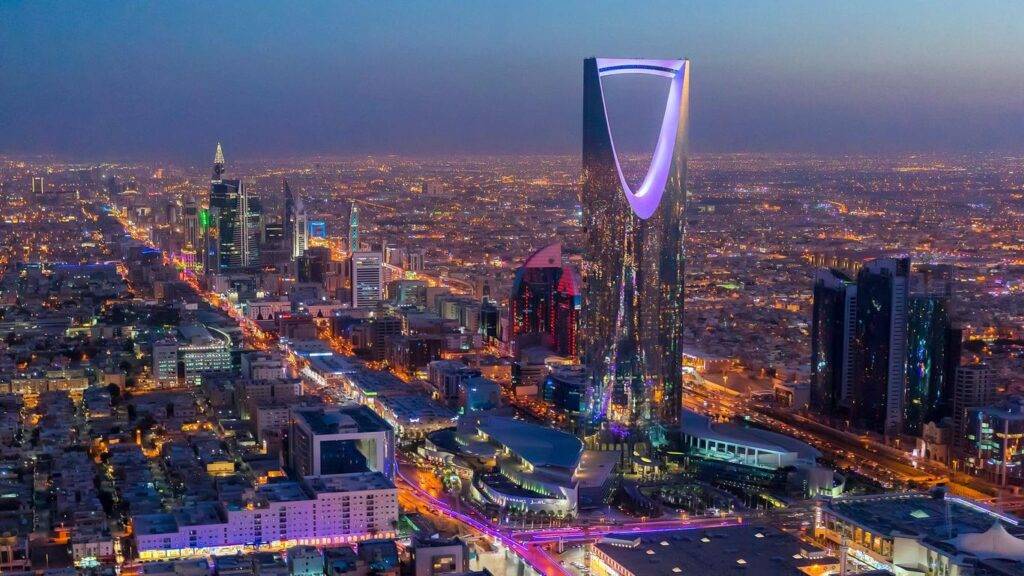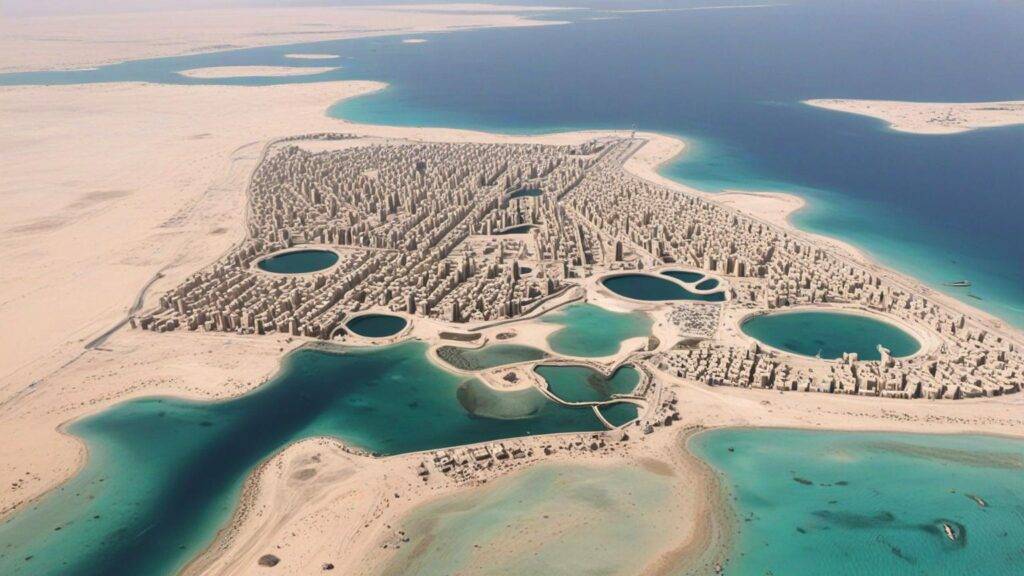Riyadh, the capital of Saudi Arabia, is a fast-growing city and a thriving business and financial center. People from around the world are now attracted to relocating to Riyadh, drawn by lucrative, tax-free salaries and a safe, family-friendly lifestyle.
Doctors and other healthcare professionals are finding new opportunities in Riyadh’s well-equipped and expanding healthcare sector.
Saudi Arabia is well-known as the birthplace of Islam and for its vast desert and oil fields. The country is undergoing amazing modernization and development while preserving its culture and heritage.

How does this influence the lifestyle and culture of cities such as Riyadh?
Culture and Religion
Traditional Saudi Arabian values, shaped by Islamic culture, emphasize respect for elders, strong family bonds, and hospitality towards guests. People widely observe Islamic customs and practices, such as daily prayers and fasting during Ramadan. Working practices accommodate prayer times, and people reduce work hours during the holy month of Ramadan.
The school and working weeks are from Sunday to Thursday, with Fridays off. Saturday may also be a working day for some. Islamic festivals, such as Eid al-Fitr and Eid al-Adha, are marked by gatherings, feasts, and family-oriented activities.
Arabic is the official language of Saudi Arabia. Learning Arabic is helpful, but people widely speak English as an informal second language.
For Muslim expats, living in Saudi Arabia offers the appeal of a lifestyle modeled around Islamic values and easy access to Islam’s holiest sites in Mecca and Medina.
Is there a dress code in Riyadh?
In Riyadh, the dress code is generally conservative with respect for the local culture. For both men and women, it is best to wear clothing that covers the shoulders, arms, and legs. The exception is in expat residential compounds, where more relaxed styles, including shorts, are acceptable.
What do women wear in Saudi Arabia?
Previously, all Saudi women had to wear an abaya (a loose, all-covering black robe) and a headscarf. However, due to the current government’s emphasis on cultural and social reforms, the way women in Saudi Arabia dress is swiftly changing. As a result, women no longer need to wear an abaya or headscarf, as long as they wear something modest.
However, for most local women, the abaya and headscarves symbolize proud Arabians and their religion, rather than a mandatory dress constraint. Hence, the vast majority of Saudi women still wear the abaya.
What do men wear in Saudi Arabia?
In Saudi Arabia, males wear a full-length loose-fitting garment with long sleeves known as a thobe. Local Saudi men avoid wearing black, as this is the color of women’s abayas.
Ghutra, a white and red checkered headdress with a double black cord known as an agal, is worn on the head. Men wear a taqiyah beneath the ghutra, a little white cap that prevents the ghutra from slipping away.
Recently, some Saudi men have embraced Western clothing while preserving their traditional attire for cultural and religious events
How is life in Riyadh for women?
In recent years, there have been significant changes to Saudi law, and women can now drive in Saudi Arabia. Expat women are exempt from many restrictions, such as the male guardianship law.
They are also no longer required to wear an abaya or cover their heads in public, but should still seek to dress modestly.
The Saudi government has been actively encouraging the employment of women in both the public and private sectors, and there are many opportunities for female health professionals.
How is the weather and climate?
Daytime temperatures regularly exceed 40°C (104°F) in the summer months, while the nights are relatively cooler but still warm. However, there is air conditioning almost everywhere to make life comfortable.
Winter daytime temperatures range from 15°C to 25°C (59°F to 77°F), and temperatures drop to around 10°C (50°F) or lower during the night. There is very little rain in the winter months. Dust and sandstorms can occur during the hotter months.


What is the best way to get around Riyadh?
Until this year, public transport in Riyadh has relied on an urban bus service, with cars and taxis being the most convenient way to get around the city. However, a new metro transport system, with six lines and 84 stations, is set to open in 2024. Low import duties on cars and cheap gasoline keep costs down for drivers.
Riyadh has an excellent road network, but there can be traffic jams during rush hours, and you need to be wary of others who may drive erratically. Road signs are in both Arabic and English. Taxis can’t be hailed in the street but can be easily booked by phone or using taxi apps such as Uber, Careem, or Bolt.
Where do expats live in Riyadh?
Most Western expats in Saudi Arabia live in expat compounds provided by their employers. These are secure, gated residential areas with a full range of amenities, such as swimming pools, tennis courts, parks, shops, restaurants, and sometimes even international schools.
The lifestyle within expat compounds tends to be more Westernized, according to the home countries of those living there. There is high demand for this type of accommodation, pushing up rents, but expat contracts often include accommodation or an allowance for housing.
It is also possible, and may be less expensive, to rent an apartment or villa in residential areas of the city. There are a lot of new developments being built to meet the demands of Riyadh’s growing population.
How does the cost of living in Riyadh compare to other Gulf cities?
Doctors and other health professionals relocating to Saudi Arabia earn a significantly higher salary than in their country of origin, and there is no income tax. Home rent and school fees in Riyadh are usually covered by allowances in employment contracts. Local groceries are reasonably priced, but imported goods can be more expensive.
The cost of buying and running a car is less expensive than in Europe or America, as is getting help at home with housework or childcare. While the cost of living in Riyadh tends to be higher than in other parts of Saudi Arabia, it is still a bit less than comparable cities in Gulf countries.
According to Numbeo’s Cost of Living Comparison website, the cost of living in Riyadh, including rent, is 37.3% lower than in Dubai, 29.6% lower than in Abu Dhabi, and 20.6% lower than in Doha. Expats working in Riyadh can afford a higher standard of living than in their home countries while also saving for the future.
Are you a highly skilled, Western-trained doctor interested in relocating to Riyadh? Contact Allocation Assist today to find out about opportunities in Saudi Arabia’s growing healthcare sector.
Read More:


